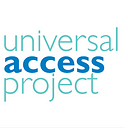Human Rights are Indivisible
By Seema Jalan
While the world is focused on battling the unprecedented COVID-19 pandemic, and as the U.S. has a necessary — and long overdue — national conversation on racial justice and systemic racism, it seems that our newsfeeds are overflowing with the latest data, headlines, and developments. But even as these priorities have rightfully dominated our collective consciousness, the current U.S. Administration has continued its long-standing effort to roll back fundamental human rights — including sexual and reproductive rights.
In the past four years, the Administration has pulled out every stop, from stripping down its annual human rights report to exclude the rights of girls, women, LGBTQ people, and other marginalized groups; to opposing the inclusion of sexual and reproductive health and rights in several major global consensus moments. One of its most recent, if obscure, efforts is the State Department’s “Commission on Unalienable Rights,” an advisory body created by Secretary of State Mike Pompeo in 2019 to examine and advise on which human rights should be “honored” in the context of U.S. foreign policy. Secretary Pompeo has envisioned the Commission as conducting “one of the most profound reexaminations of the unalienable rights in the world” since the 1948 Universal Declaration of Human Rights (UDHR), which was adopted by the United Nations and signed by the U.S., that declares that “all human beings are born free and equal in dignity and rights.” Given the Administration’s track record — and the fact that members of the Commission have been vocally hostile toward LGBTQ and sexual and reproductive health and rights — human rights experts have long voiced concern about how this “reexamination” might play out, and how it could impact U.S. foreign policy going forward.
This effort has certainly not been put on pause in light of the current pandemic. Last week, the Commission released a draft report on its findings — largely, an analysis of the what the Commission deemed to be “unalienable rights” outlined in the United States’ founding documents compared with the rights set forth in the UDHR. The report, according to Secretary Pompeo, is meant to be a framework “to ask the right questions, and a basis for thoughtful, rational debate” on human rights — focused, he said, on principle, not policy. Commissioners identified religious freedom and property rights as essential, while labeling some rights — “abortion, affirmative action, and same-sex marriage” — as “divisive social and political controversies in the United States”. The report is open to public comment for two weeks before being finalized.
While the content was not surprising given longstanding concerns over the Commission, the report quickly sparked outrage from Congress, the media, and civil society organizations. Opposition to the Commission has indeed been building over time: previously, almost 180 non-governmental organizations and more than 250 individual signatories collectively urged Secretary Pompeo to dismantle the Commission, and earlier this year, four organizations filed a lawsuit against Secretary Pompeo and the State Department on the grounds that the Commission unlawfully violates requirements of the Federal Advisory Committee Act, which requires that advisory groups for a federal agency fulfill a public interest need, operate transparently, and have a balanced membership. Twenty Senators, led by Sen. Bob Menendez, Ranking Member of the Senate Foreign Relations Committee, also sent a letter in May to Secretary Pompeo raising concerns about the Commission and its work.
Prominent and long-standing human rights advocacy organizations like Human Rights Watch, Human Rights First, and the Council for Global Equality are among those leading the charge against the Commission and its “report”, but they do not stand alone. A broad community has coalesced in support of universal human rights, from sexual and reproductive health and rights leaders like the International Women’s Health Coalition and CHANGE, to faith-based organizations like the American Jewish World Service, Muslims for Progressive Values, and Catholics for Choice, to former government officials like Susan Rice, former National Security Advisor and U.S. Permanent Representative to the United Nations, and Catherine Russell, former U.S. Ambassador for Global Women’s Issues.
This broad opposition to the Commission is centered in the fundamental truth that human rights are intrinsic. They cannot be redefined by a single global entity, and they need not be “reexamined,” or pitted against each other in an attempt to create a hierarchy. Internationally-recognized human rights instruments — like the UDHR and the International Covenant on Civil and Political Rights, both of which the U.S. ratified — already exist to protect and balance human rights. As Human Rights Watch Executive Director Kenneth Roth said in his testimony to the Commission, “Human rights do not exist in the eye of the beholder. Pretending that they do would create a dangerous opening that rights abusers the world over would be happy to exploit.”
The U.S. has outsized influence in global affairs — and too often, it sets a tone that other countries follow. We’ve already seen how harmful U.S. foreign policies that restrict the rights of marginalized populations, like the Global Gag Rule and the defunding of UNFPA, have had real impacts on people around the world — violating basic human rights and now exacerbating the current global pandemic, with disproportionate impacts on groups that are already disenfranchised due to race, sexuality, and ability.
So what does it mean for the U.S. to step back from and attempt to broadly redefine agreed-upon human rights? It means that long-marginalized groups, whose rights are already at risk, will be made more vulnerable to rights violations. It means that fundamental human rights, like reproductive rights and LGBTQ rights, may be deprioritized and politicized further. It means that when crisis strikes, like the pandemic we currently face, the U.S. response will only address those rights it deems important. And if the views of the Commissioners are any indication, rights for girls, women, LGBTQ people, and minorities may not be on that list.
Learn more about the Universal Access Project and get involved at www.universalaccessproject.org.
